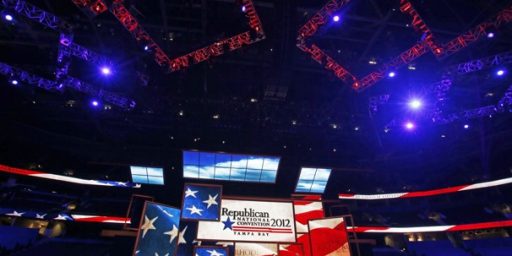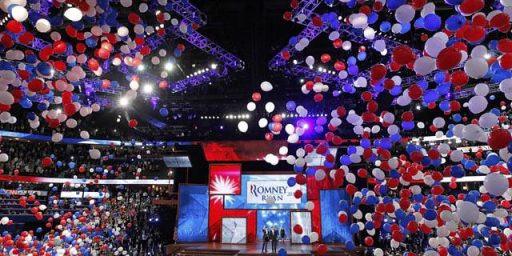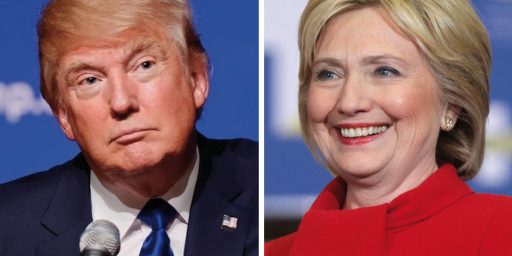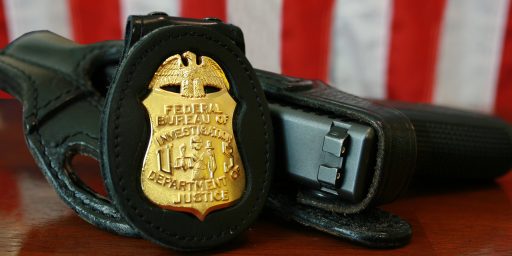FBI Monitored Web Sites for 2004 Protests
The ACLU and others are concerned that the FBI is monitoring the activities of extremist groups.
FBI Monitored Web Sites for 2004 Protests (WaPo, A4)
FBI agents monitored Web sites calling for protests against the 2004 political conventions in New York and Boston on behalf of the bureau’s counterterrorism unit, according to FBI documents released under the Freedom of Information Act. The American Civil Liberties Union pointed to the documents as evidence that the Bush administration has reacted to the Sept. 11, 2001, terrorist attacks on the United States by blurring the distinction between terrorism and political protest. FBI officials defended the involvement of counterterrorism agents in providing security for the Republican and Democratic conventions as an administrative convenience.
The documents were released by the FBI in response to a lawsuit filed by a coalition of civil rights, animal rights and environmental groups that say they have been subjected to scrutiny by task forces set up to combat terrorism. The FBI has denied targeting the groups because of their political views. “It’s increasingly clear that the government is involved in political surveillance of organizations that are involved in nothing more than lawful First Amendment activities,” said Anthony Romero, executive director of the ACLU. “It raises very serious questions about whether the FBI is back to its old tricks.”
The two political conventions, especially the Republican convention, were obvious high value terrorist targets. It’s hardly surprising that the FBI was monitoring groups who threatened to stage protests, especially those who had displayed a tendency toward criminal behavior in the past.
Further, while PETA is unlikely to ally itself with Islamist extremists, or even to be infiltrated by same, it surely makes sense for the FBI to coordinate its convention security activities through a single office to avoid duplication of effort. The means to corral protestors, perform crowd control, and search those entering the building for weapons will naturally overlap greatly with the counterterrorism measures taken.




